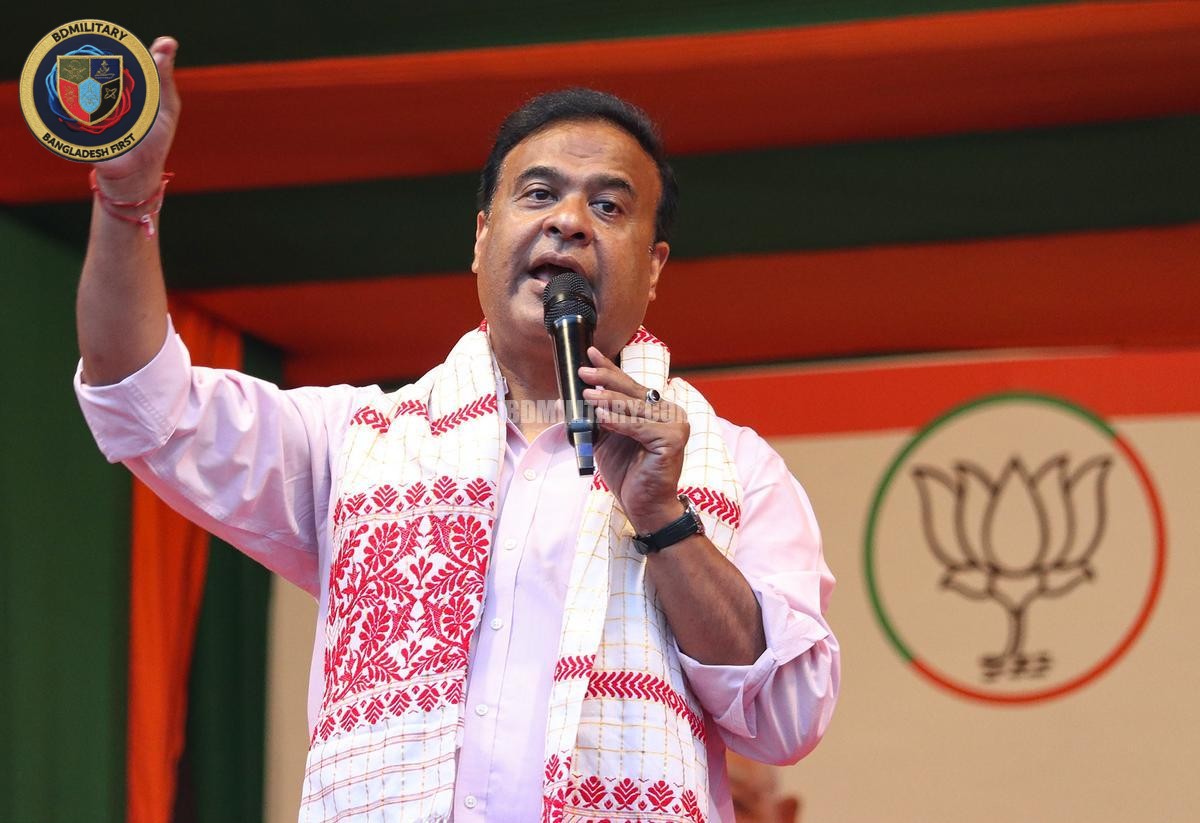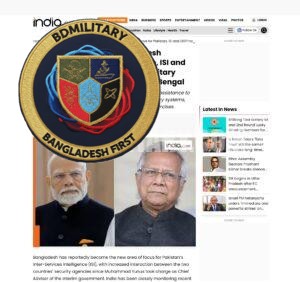When Assam Chief Minister Himanta Biswa Sarma directed police to register a case of “treason” against local Congress leaders for allegedly singing Bangladesh’s national anthem during a party meeting, it sparked a storm across India’s north-east — and yet again revealed how cultural identity is being weaponised for political ends.
At a press conference in Guwahati, Sarma declared:
“The Congress meeting started with the singing of Bangladesh’s national anthem instead of the Indian national anthem. It is a blatant disrespect to the people of India.”
He further ordered the police to “initiate legal action” under treason provisions, framing the incident as an act against national honour. The local Congress unit, however, stated that the song in question — Amar Shonar Bangla — was performed as a tribute to Rabindranath Tagore, who composed it decades before Bangladesh’s independence in 1971.
Sribhumi District Congress president Tapas Purkayastha countered:
“Don’t play politics with Rabindranath Tagore. Criticising this song means insulting Rabindranath Tagore himself.”
Assam Congress chief Gaurav Gogoi accused the BJP of manufacturing outrage:
“The BJP is trying to politicise this but they are deliberately ignoring the cultural and historical context behind it.”
A Pattern of Anti-Bangladesh Politics
This latest controversy fits neatly into Sarma’s long record of inflammatory rhetoric concerning Bangladesh and its people. Since taking office in 2021, he has positioned himself as a guardian of Assamese identity against so-called “Bangladesh-origin infiltrators”, frequently invoking the idea of a “Greater Bangladesh” threat.
In earlier statements, he claimed that “90 percent of Congress MLAs are descendants of Bangladeshis,” and insisted that anyone declared a foreigner should be “pushed back into Bangladesh,” even if included in India’s National Register of Citizens. He has also proposed conditions for Bengali-speaking Muslims to be considered “indigenous,” such as abandoning polygamy and limiting family size — comments that have been widely criticised as discriminatory.
Sarma’s rhetoric often conflates Bengali cultural identity with illegal immigration, creating a polarising narrative that blurs distinctions between Indian citizens of Bengali origin and actual undocumented migrants. This serves his political base, which is built upon Assamese linguistic nationalism and anti-migrant sentiment.
The Political Motive
Sarma’s order to prosecute local Congress leaders is less about national security than about optics and timing. As Assam approaches a new electoral cycle, the BJP is eager to reinforce its “protector of national identity” image. By dramatising a local cultural event into an act of treason, the Chief Minister positions himself as a hardline nationalist defending India’s honour — while simultaneously discrediting the opposition.
This aligns with a broader pattern in Indian politics, where cultural and linguistic issues are routinely reframed as national security threats. Sarma’s comments not only play into domestic communal polarisation but also risk complicating Assam’s delicate socio-linguistic balance.
The Irony of Identity
Ironically, Sarma’s own ancestry has occasionally been questioned in Assamese social circles, with unsubstantiated rumours suggesting a distant migrant background — a reflection of the identity politics he has helped mainstream. While no credible evidence supports such claims, they highlight the circular nature of Assam’s ethno-political debates, where accusations of “foreign origin” have become tools of both attack and defence.
It is noteworthy that Amar Shonar Bangla, far from being a symbol of division, was composed in 1905 as a protest against the colonial partition of Bengal — a hymn to unity and identity. The song became Bangladesh’s national anthem decades later, but its author, Tagore, remains one of India’s greatest cultural icons and a Nobel laureate celebrated across South Asia.
Cultural Weaponisation and Regional Implications
By equating a Tagore song with treason, Sarma’s administration effectively criminalises shared cultural heritage that predates modern national borders. This has troubling implications not only for India’s internal cohesion but also for its relations with Bangladesh, which remain sensitive along political, security and migration lines.
Bangladesh, a friendly neighbour, has refrained from commenting publicly on the matter. However, the optics of an Indian Chief Minister treating its national anthem as a hostile symbol are unlikely to go unnoticed in Dhaka. The episode underscores how easily domestic politics in India’s border states can inflame bilateral sensitivities and distort historical truths for electoral gain.
Conclusion
The “treason” controversy in Assam exposes the deep entanglement between politics, identity and nationalism in India’s northeast. Himanta Biswa Sarma’s decision reflects more than a knee-jerk reaction — it is a calculated act of political theatre designed to reinforce his image as the uncompromising defender of Assamese and Indian identity, while marginalising Bengali-speaking communities and opposition voices.
In doing so, he risks erasing the shared cultural legacy of figures like Rabindranath Tagore, whose works once united the subcontinent through art and language — long before politics drew hard borders.
Annex A — Key Statements from Indian Media
| Source | Headline / Quote | Summary |
|---|---|---|
| Times of India | “Slap treason case in anthem row, orders Assam CM” | CM Sarma directs police to file treason case over Bangladesh anthem sung at Congress event. |
| Indian Express | “Assam CM links anthem row to ‘Greater Bangladesh’ threat” | Sarma frames incident within his long-standing anti-migration and national security narrative. |
| NDTV | “90% of Congress MLAs descendants of Bangladeshis, claims Assam minister” | Illustrates his consistent attempt to associate opposition with foreign ancestry. |
| Scroll.in | “Himanta Biswa Sarma’s dangerous identity politics” | Opinion piece warning that his rhetoric endangers Assam’s social cohesion. |

Ayesha Farid is a regional security specialist focusing on South Asia, with over a decade of experience analysing inter-state tensions, cross-border insurgency, and regional power dynamics. She has worked with leading policy think tanks and academic institutions, offering nuanced insights into the complex security challenges shaping the subcontinent. Ayesha’s expertise spans military doctrines, border disputes, and regional cooperation frameworks, making her a vital contributor to BDMilitary’s coverage of South Asian strategic affairs. She leads the Geopolitics & Diplomacy section at BDMilitary. Ayesha holds a dual master’s degree — a Master in International Relations from the IE School of Politics, Economics & Global Affairs, Spain, and a Master of Public Policy from the Munk School of Global Affairs, University of Toronto, Canada — combining deep academic insight with practical policy expertise.

